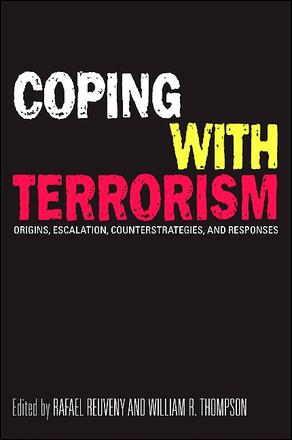
Coping with Terrorism
Origins, Escalation, Counterstrategies, and Responses
Alternative formats available from:
Open access edition available from:
A comprehensive examination of multiple dimensions of terrorism
Description
Terrorism is imprinted on Western society's consciousness. Nearly every week a terrorist attack occurs in the world. The academic world, in attempting to understand terrorism, has often been limited to descriptive work rather than analysis, and has produced surprisingly few mainstream collections on the subject. Coping with Terrorism offers a collection of essays that ask: who are terrorists, what are their goals, who supports them, and how can we combat their tactics? The essays are scholarly, rather than journalistic or ideological, in their approach. As such, they scrutinize a much-discussed and prevalent subject and bring it into the mainstream for international relations.
This book is freely available in an open access edition thanks to Knowledge Unlatched—an initiative that provides libraries and institutions with a centralized platform to support OA collections and from leading publishing houses and OA initiatives. Learn more at the Knowledge Unlatched website at: https://www.knowledgeunlatched.org/, and access the book online at the SUNY Open Access Repository at http://hdl.handle.net/20.500.12648/7125.
Rafael Reuveny is Professor of Political Economy at Indiana University. His books include Democracy and Economic Openness in an Interconnected System: Complex Transformations. William R. Thompson is Donald A. Rogers Professor of Political Science at Indiana University. His many books include Causes of War. Together they have coauthored Limits to Globalization: North-South Divergence and Growth, Trade, and Systemic Leadership.
Reviews
"...a fascinating edited volume … The careful analytical approach, broad scope, and thought-provoking character of this book as a whole justifies using it as a text not only in graduate-level seminars but also in advanced undergraduate courses." — H-Net Reviews (H-War)